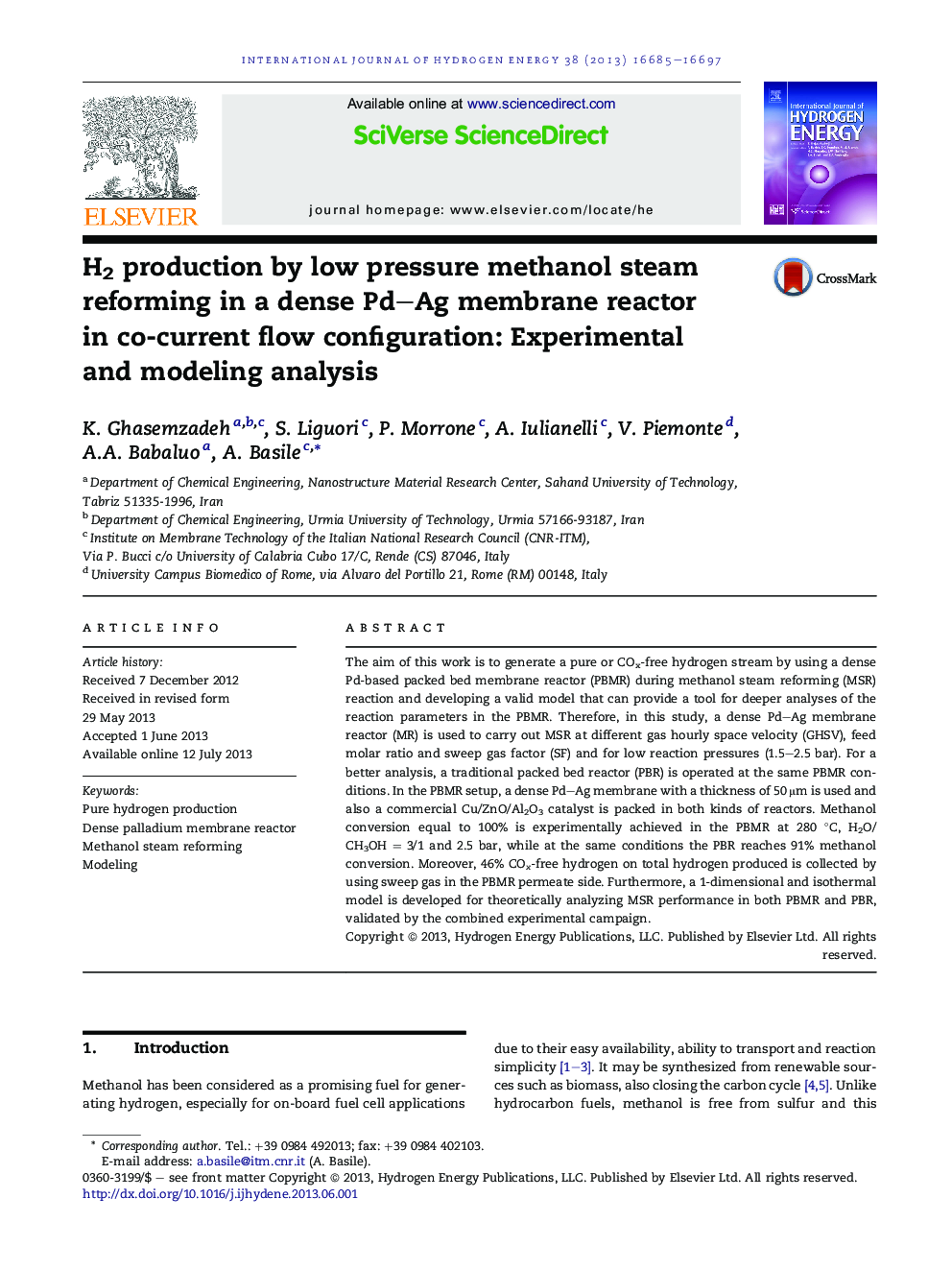| Article ID | Journal | Published Year | Pages | File Type |
|---|---|---|---|---|
| 1274237 | International Journal of Hydrogen Energy | 2013 | 13 Pages |
•Methanol steam reforming reaction was performed in a Pd–Ag MR for producing H2.•At p = 2.5 bar, T = 280 °C, H2O/CH3OH = 3/1, SF = 8.9, 100% of CH3OH conversion and ∼40% H2 recovery were reached.•Modeling analysis is in good agreement with the experimental results.
The aim of this work is to generate a pure or COx-free hydrogen stream by using a dense Pd-based packed bed membrane reactor (PBMR) during methanol steam reforming (MSR) reaction and developing a valid model that can provide a tool for deeper analyses of the reaction parameters in the PBMR. Therefore, in this study, a dense Pd–Ag membrane reactor (MR) is used to carry out MSR at different gas hourly space velocity (GHSV), feed molar ratio and sweep gas factor (SF) and for low reaction pressures (1.5–2.5 bar). For a better analysis, a traditional packed bed reactor (PBR) is operated at the same PBMR conditions. In the PBMR setup, a dense Pd–Ag membrane with a thickness of 50 μm is used and also a commercial Cu/ZnO/Al2O3 catalyst is packed in both kinds of reactors. Methanol conversion equal to 100% is experimentally achieved in the PBMR at 280 °C, H2O/CH3OH = 3/1 and 2.5 bar, while at the same conditions the PBR reaches 91% methanol conversion. Moreover, 46% COx-free hydrogen on total hydrogen produced is collected by using sweep gas in the PBMR permeate side. Furthermore, a 1-dimensional and isothermal model is developed for theoretically analyzing MSR performance in both PBMR and PBR, validated by the combined experimental campaign.
